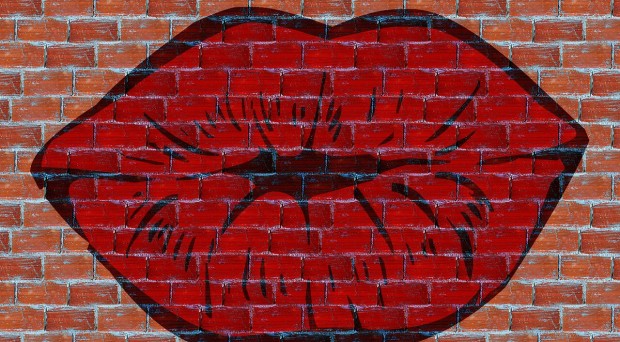
Christmas seems to come earlier each year. Our thoughts turn to the exchange of gifts, time with family and friends and the inevitable office party. But you may find that you exchange more than a secret santa gift this year. A drunken kiss with a colleague could leave you with many million of their oral bacteria, according to a new study in Microbiome.
It is an oft-quoted fact that we have more bacterial cells living on us than the number of human cells we’re made from. Less well understood is how bacteria move between us, travelling from human to human, from human to animal (including our pets) and to and from our built environment.
The oral microbiome has been reasonably well studied over the last few years, showing that many species of bacteria make their home in the human oral cavity. Over 41 genera of bacteria and over 500 different species can be found in a healthy human mouth, capable of surviving in an uncertain environment with huge variations in nutrients, oxygen and acidity.
The Human Oral Microbiome Database and the Human Microbiome Project have characterised these bacteria using metagenomic techniques to show its rich ecology. Oral bacteria also have a clear role in disease – various species living in a microbial plaque on the teeth and gums cause dental caries, gingivitis, and periodontitis, with Streptococcus mutans as the preeminent cause of cavities.
Diet and regularity of brushing are major risk factors for various diseases of the mouth. But mouths are not just for eating with. Kissing is a well known route by which bacteria and viruses can spread – the most famous being Epstein Barr Virus, cause of ”the kissing disease” glandular fever, also known as infectious mononucleosis. But the precise role of kissing in shaping the microbial ecology of our mouths is not at all understood. Until now.
Researchers in Amsterdam, whose study is published today, showed that the more a couple kisses, the more similar their oral bacteria. Using questionnaires and an analysis of oral microbes, they found that there was a correlation between microbial similarity and the number of kisses each couple shared.
Just as dogs begin to look like their owners, as the years go on and more kisses are exchanged, our oral bacteria become similar to our partner’s. A second experiment with a probiotic yoghurt counted the number of bacteria exchanged in a 10 second “intimate” kiss – and found a whopping 80 million passed from tongue to tongue.
Our oral microbiome is therefore influenced by our food, our dental hygiene – and our partners. Perhaps another reason to limit your sherry intake this December.
- Zika virus – a Brazilian perspective on a global health emergency - 4th February 2016
- Sun, Sand and Viruses – highlights from the Brazilian Congress of Virology - 28th October 2015
- Sealed with a kiss – and 80 million oral bacteria - 17th November 2014
Comments